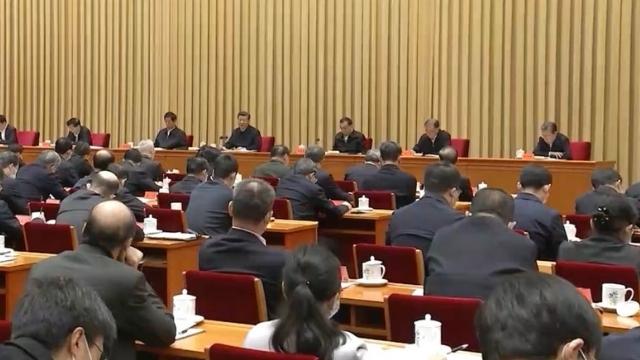Xi Jinping asks for more Marxism, more surveillance of the Web, more Sinicization.
by Hu Zimo

On December 3 and 4, the Chinese Communist Party held in Beijing a National Conference on Work Related to Religious Affairs. It was the first such conference since 2016, not an auspicious recurrence for believers considering that at the 2016 conference President Xi Jinping had announced his plans for a more severe crackdown on religion, which were implemented in subsequent years.
All the top leadership of the CCP, including Xi Jinping himself, attended the conference and gave speeches. Xi’s speech continued the line he started in 2016, noted progress in implementing it, but said problems still exist.
In particular, Xi lamented that monitoring the Internet to prevent religious propaganda and inappropriate remarks on social media is still not functioning properly. He called for more surveillance, and for punishing believers who use social networks for religious proselytization or criticism of the government’s religious policy.

Xi said that government-controlled religious bodies (i.e., the five approved religions) should develop a “religious theory of socialism with Chinese characteristics.” This means in particular that religions should learn to conduct their activities in their places of worship and accept that they should not “interfere with social life” and the education of the younger generations.
Xi admitted that there are unsolved problems, and parts of the religious world that try to operate independently of the CCP. He said that the solution is to improve the ideological commitment of the bureaucracy dealing with religion, which sometimes may be tempted to operate outside of the framework established by the Marxist theory of religion.
Xi emphasized that “it is necessary to cultivate a team of party and government cadres who are proficient in Marxist religious views, familiar with religious work, and good at working with religious believers, and let them study Marxist religious views, the CCP’s religious work theories and policies, and religious knowledge.” They should be well-informed about religion but above all should be “firm in ideology and politics, adhere to Marxist religious views, … and strengthens the construction of the discipline of Marxist religious studies.”
Xi also reiterated once again that “Sinicization” of religion means that all religious communities should be led by the Party, controlled by the Party, and support the Party.

Uses a pseudonym for security reasons.



